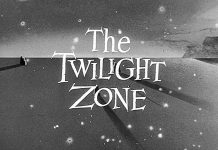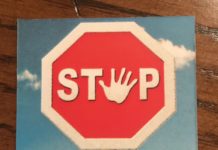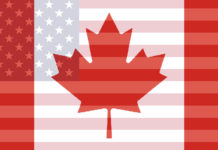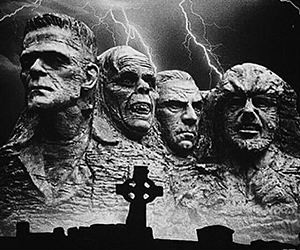In Remembrance of Ishmael
When I was fifteen our family went up to a cabin my Grandfather rented for the week. On the second night two men from the third cabin down from us, a man and his twenty-something son, came over to our fire. Introductions were made all around and it turned out the man knew somebody my grandfather knew so that meant we were all kind of connected somehow so have a seat around the campfire.
After talking about the weather, could be worse, and the fishing, could be better, the conversation died down some and then the man said his son had just returned from Vietnam.
That caused a flurry of comments that were straight out of a 1940’s World War Two movie. The “Glad you made it back safe son.” and “We’re all proud of our Fighting Boys.” sorts of things people say.
And then I asked the son a question. I didn’t know it at the time, but that question, and his answer, would change the direction of my life, and the way I thought about just about everything from that moment on.
I asked him, “What Was It Like Over There?”
And he began to talk.
While he was talking he didn’t look at me, or anybody else, or into the fire. While he talked he was looking into the Night. Someplace off past my shoulder … into the Dark.
He didn’t talk with any expression. No anguish, drama, or emotion. Just one word after another, brick by brick, in a calm, flat monotone.
He talked about … bodies.
Ripped apart in a burst of gunfire or one well-aimed shot to the head. Mines that blew people apart, or maimed. He spoke words that described the effects of bullets, hand grenades, mortar shells, and bombs on the human body.
“Blood and bones and jelly,” he said.
Men, women, and children. Vietnamese and American bodies. Didn’t make any difference to him as he spoke. Just recounting the dead bodies that he’d seen from memory. To him The Dead were all citizens of the same country.
He didn’t talk about “Fighting For America” or “Fighting Against Communism.” He talked about fighting to survive. He talked about going out to kill people, afraid of being killed, and killing whoever he thought was trying to kill him and his buddies. Again and again and again until somebody said he could stop for awhile, rest up, and then go do it some more. And now he was back.
Even then I knew he wasn’t “back.” I didn’t know who the father had sent off to war. But I knew that the guy who came back had been fundamentally and completely altered by The War.
I watched his father as his son talked on. He looked like any parent would … while listening to their child tell of the horrible things they had seen. The things every parent would try to protect their children from seeing … and doing … if only they had known.
I don’t remember what we all did after the son told us about What It Was Like Over There. I can guess that The Grown Ups, somewhat embarrassed by the naked honesty of what they had heard, said their hurried Good Nights and maybe the fishing will be better tomorrow as we drifted back to our cabin.
No one ever said anything about what the son had talked about. Years later I asked if anybody remembered the Vietnam Vet we met up at the lake that night and … nobody remembered him.
Because of him … I didn’t go to Vietnam. My decision wasn’t based on disagreeing with “America’s Imperialistic Foreign Policy” or refusing to be a part of another “U.S. War of Aggression against a Third-World Country.”
That came later. Books and books and more books later.
I didn’t go because I didn’t want to see what he had seen. I didn’t go because I didn’t want to end up like him. A guy who at one time probably cared about cars, girls, sports, and college but came back with all that blasted away. Came back with everything blasted away. Leaving him a ghost that nobody remembered nor listened to his warning.
Now we embark on the Sixth Year of another Imperialistic American War that makes more bodies. More maimed. More survivors. More ghosts.
More people used up and discarded by whoever they are … those people that decide that it’s time once again to make untold billions … by making war.
Is it possible … is it too much to ask … for us to spend a little bit of our time … and demand that THEY STOP!
42 years ago I listened to a twenty-something Vietnam Vet tell me his story. I don’t remember his name but after I read Moby Dick, I always thought of him as “Ishmael.”
A man who ended his story …
“The drama’s done. All are departed away … I only am escaped, alone, to tell thee.”
In Remembrance of Ishmael
March 18. 2008
Listen to this segment from The Mike Malloy Show here: http://www.voicesinourheads.com/2017/07/10/remembrance-ishmael-2/













